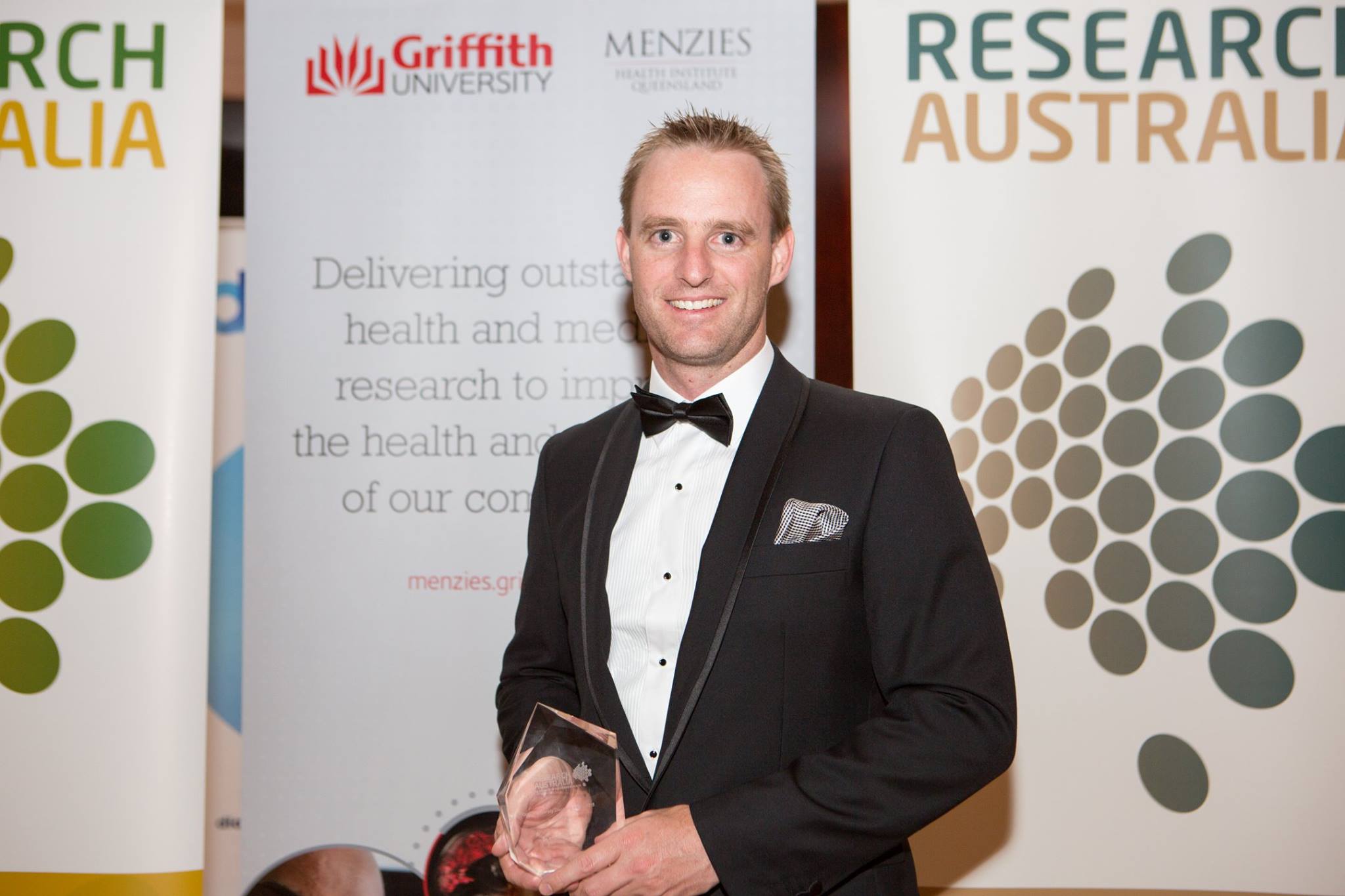Congratulations to the winner of the Griffith University Discovery Award: Dr Christine Keenan
Congratulations to the Griffith University Discovery Award Finalist: Dr Berhan Ayele Haile
Congratulations to the Griffith University Discovery Award Finalist: Dr Lucia Romani
Australian Health and Medical Research Night of Nights
Media Release: 17 November 2016
Australia’s most inspiring health and medical researchers, advocates and philanthropist were celebrated last night at the 2016 Research Australia Health and Medical Research Awards.
Nadia Levin, CEO of Research Australia, said the night was a magnificent success that paid tribute to the efforts and energy of some of the sectors biggest names and most promising up-and-comers.
“Last nights’ Health and Medical Research Awards prove that Australia’s research sector is a force to be reckoned with,” said Ms Levin.
“We were joined by hundreds of people who tirelessly work to improve the health and wellbeing of our wider community, and it was an honour to acknowledge their work.
“The best health and medical research requires innovation, drive, creativity and ingenuity, and the 2016 Research Australia Award Winners exemplify all of those characteristics,” she said.
Continue reading “Australian Health and Medical Research Night of Nights”
Early career researchers make their mark with high impact work
Nominations for the 2016 Research Australia Health & Medical Research Awards are now closed and we would like to take this opportunity to thank all those that nominated their heroes. 2016 has seen the highest number of nominations for the Awards and the stories are amazing. We look forward to sharing some of them with you.
We start with a small selection of nominations for the Griffith University Discovery Award. This Award recognises an early career researcher (anytime from qualification but no more than 5 years past PhD or research higher degree) whose paper, patent or discovery has already demonstrated its importance or impact. Which of these amazing people below will join the ranks of the prestigious Discovery Award alumni including: Dr Jeff Holst, Dr Sarah Whittle, Dr Mark S Pearson, Dr Oliver Baumann, Dr Motoko Koyama, Dr Franziska Bieri, Dr Genevieve Healy and Dr Andrew Gardner.
Continue reading “Early career researchers make their mark with high impact work”
2015 Discovery Award Winner: Dr Andrew Gardner
Research Australia
Health & Medical Research Awards
2015 Griffith University Discovery Award
Award Winner
Dr Andrew Gardner
School Of Medicine & Public Health
University Of Newcastle
Dr Gardner has conducted research in the field of sports concussion for the past eight years. He received first class honours in Psychology (University of New England) and subsequently completed a Doctor of Psychology (Clinical Neuropsychology) degree at Macquarie University, Sydney, where he conducted research in to the acute and cumulative neuropsychological consequences of sport-related concussion. His thesis received the prestigious award for the Most Outstanding Dissertation for 2011 from the National Academy of Neuropsychology (USA). During his post-graduate studies he also pioneered and managed the Macquarie University Sports Concussion Clinic.
Following this Dr Gardner completed his PhD at Newcastle University, studying the potential long-term consequences of participation in collision sports. He has published 16 peer review articles, two book chapters, presented at numerous national and international conferences, and has contributed to the policy papers of Brain Injury Australia and Alzheimer’s Australia (NSW). In 2013 he was invited as a leading early career researcher to contribute to the Australian Academy of Science Theo Murphy High Flyer’s Think Tank on ‘inspiring smarter brain research in Australia’. He was also awarded an Australian Endeavour Research Fellowship to visit Harvard Medical School for four months in 2014. He is the Co-Director of the Hunter New England Sports Concussion Clinic.
Dr Gardner is now focusing on the potential long-term consequences of participation in collision sports. He is attempting to delineate the effect of head trauma as a risk factor for later life neurodegenerative disease by undertaking neuropsychological testing and neuroimaging investigation in active and retired athletes. His current research includes working on assessing retired rugby league players to determine their cognitive, neurological, psychiatric and psychological profiles. He is also currently also working on the video analysis of concussion in the National Rugby League, the first time this has ever been conducted. Dr Gardner created a tool, the Observational Research Analysis of Concussion in League Evaluation (ORACLE), that he is validating to assist club medical staff with recognising/detecting players who may have sustained a concussion (and should be removed from play for further assessment).
The results of the video analysis and the use of the ORACLE will hopefully help prevent concussions by identifying at-risk behaviour, in addition to detecting concussion, which will significantly improve player welfare. He is currently involved with a consortium of researchers from Cardiff University Brain Imaging Research Centre (CUBRIC) in research discussion with the Welsh Government and Welsh Rugby Union to monitor and examine concussed active and retired players.
..



